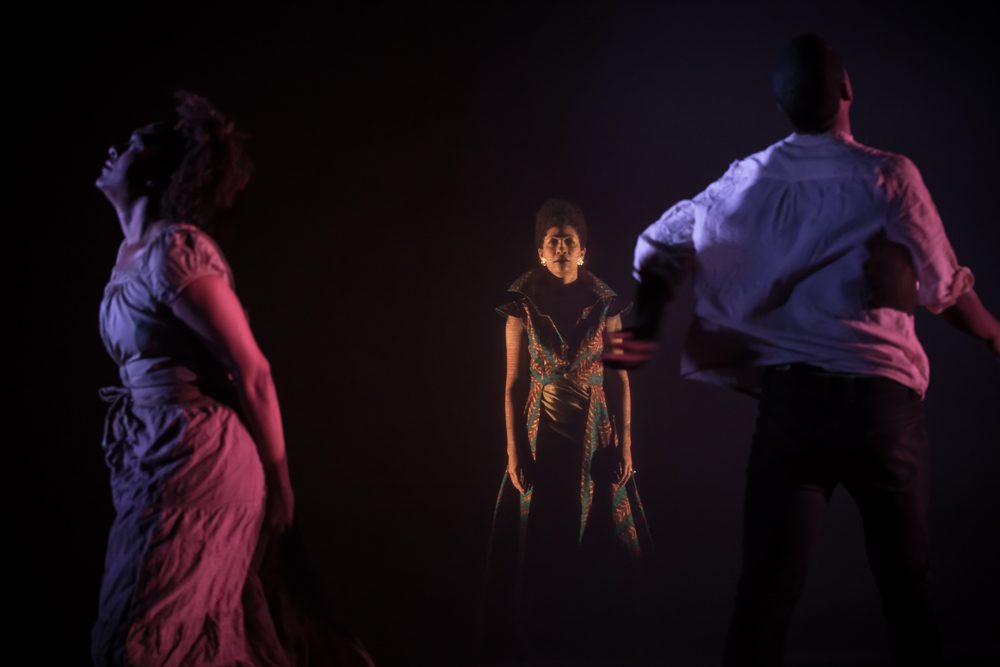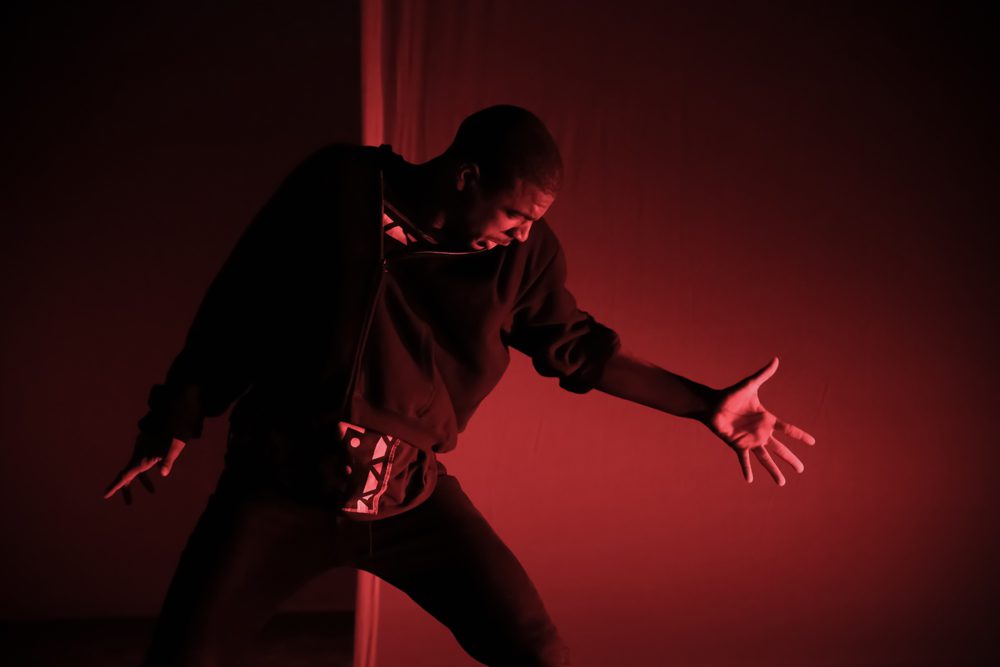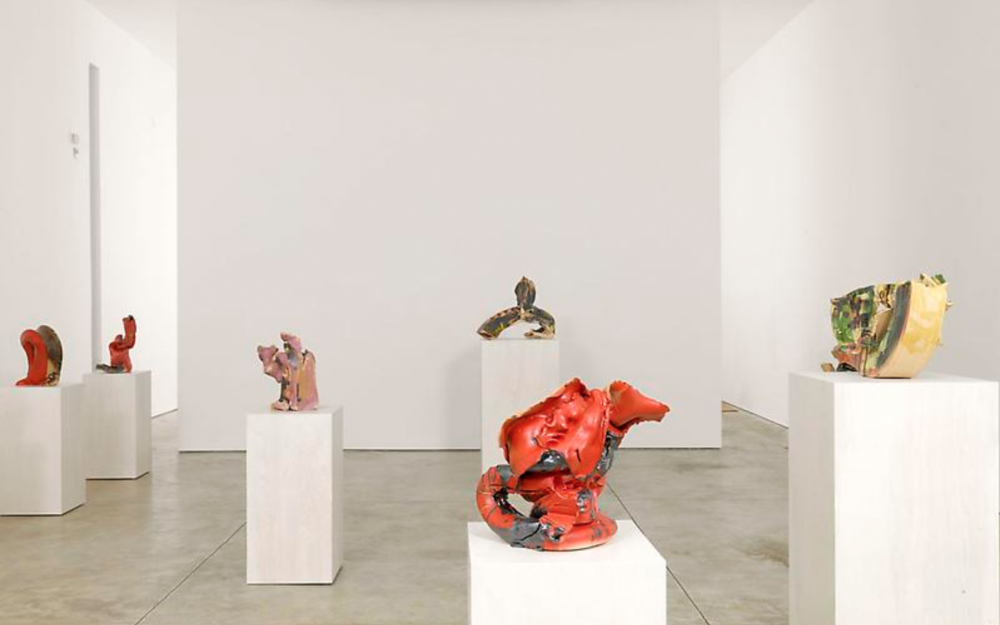An Invitation to Return: “Gomela” at Ashé Powerhouse Theater
Tina Orlandini reviews a recent performance from Junebug Productions that examines the cultural legacy of the African diaspora in present-day New Orleans.

A promotional photo for Junebug Productions’ Gomela/to return: Movement of Our Mother Tongue. Photo by Melisa Cardona.
I first encountered the mesmerizing work of poet Sunni Patterson last year at a Junebug Productions event, Homecoming Project Congo Square—a participatory storytelling performance series based in New Orleans in which Patterson was one of several featured artists—and her seemingly improvised spoken-word performance was like none other I had experienced. Since then I have looked forward to more chances to witness what can only be described as supreme mastery of the written and performed word.
Still, Junebug’s latest production Gomela/to return: Movement of Our Mother Tongue, which was written by Patterson and directed by Stephanie McKee, surpassed my expectations, having an impact that only comes when art is elevated to its highest calling: transforming those who encounter it and (re)directing us on a path toward justice.
Within 55 minutes, Gomela stretches hundreds of years and thousands of miles across ocean and land, connecting generations and unearthing deep cultural roots between Africa, Haiti, and New Orleans. The words of Patterson’s epic poem, spanning the life of the performance, contemporize manifestations and traumas of slavery through interpretations of police violence and the evolution of Jim Crow into mass incarceration; they also declare honor and power for black people with lines like “wild women are not to be tamed, only admired,” and “black boy proud of the black man he has become.”
Gomela’s stage at Ashé Powerhouse Theater included three large translucent backdrops from which members of the ensemble emerged and disappeared throughout the show. Above the stage, a projection screen displayed video pieces, at times alongside the performance and at others on their own, with audio recordings of spoken word by A Scribe Called Quess?, Frederick “Hollywood” Delahoussaye, and Ausettua Amor Amenkum.

Junebug Productions’ Gomela/to return: Movement of Our Mother Tongue at Ashé Powerhouse Theater, New Orleans. Photo by Melisa Cardona.
Broken into a series of vignettes, Gomela creates an abstract narrative in which the characters are represented through dance, a single drum played by Jawara Simon, and Patterson’s omniscient narration in the form of a poem. Bright and stunning costumes, designed by Ja’nese Brooks-Galathe and Dana Leon Lima of AYA Designs, allude to Yoruba culture and tradition and play a central role in conveying Patterson’s celestial character.
Patterson’s words are matched by the expressive choreography created and performed by Jeremy Guyton, Kai Knight, and Kesha McKey. These solo and ensemble dance pieces are powerful poetry in their own right, through a language of movement and raw emotions—rage, suffering, trauma, resistance, exuberance, joy.
Speaking to its namesake, Gomela—a Bantu word meaning “to go back/to return”—articulates, in varied art forms, the displacement of black people and the gentrification of historically black neighborhoods in New Orleans after Hurricane Katrina. In this same light, Gomela weaves in astutely produced video and photo imagery of the separate existences of black and white people in present-day New Orleans and how this segregation plays out in public space.
Above all, Gomela is a critical reminder of why it is and will continue to be vital for us to call on and dive deep into our country’s history of slavery and systemic racism. It is an invitation for us to return to, or reach for the first time, a place of true freedom and humanity. There is still much more talking, writing, interpreting, healing, resistance, and love to be expressed, and Gomela reminds us that there is a seat at the table for all willing to listen and act.
Editor's Note
Junebug Productions’ Gomela/to return: Movement of Our Mother Tongue was performed January 19-29, 2017, at Ashé Powerhouse Theater (1731 Baronne Street) in New Orleans.



